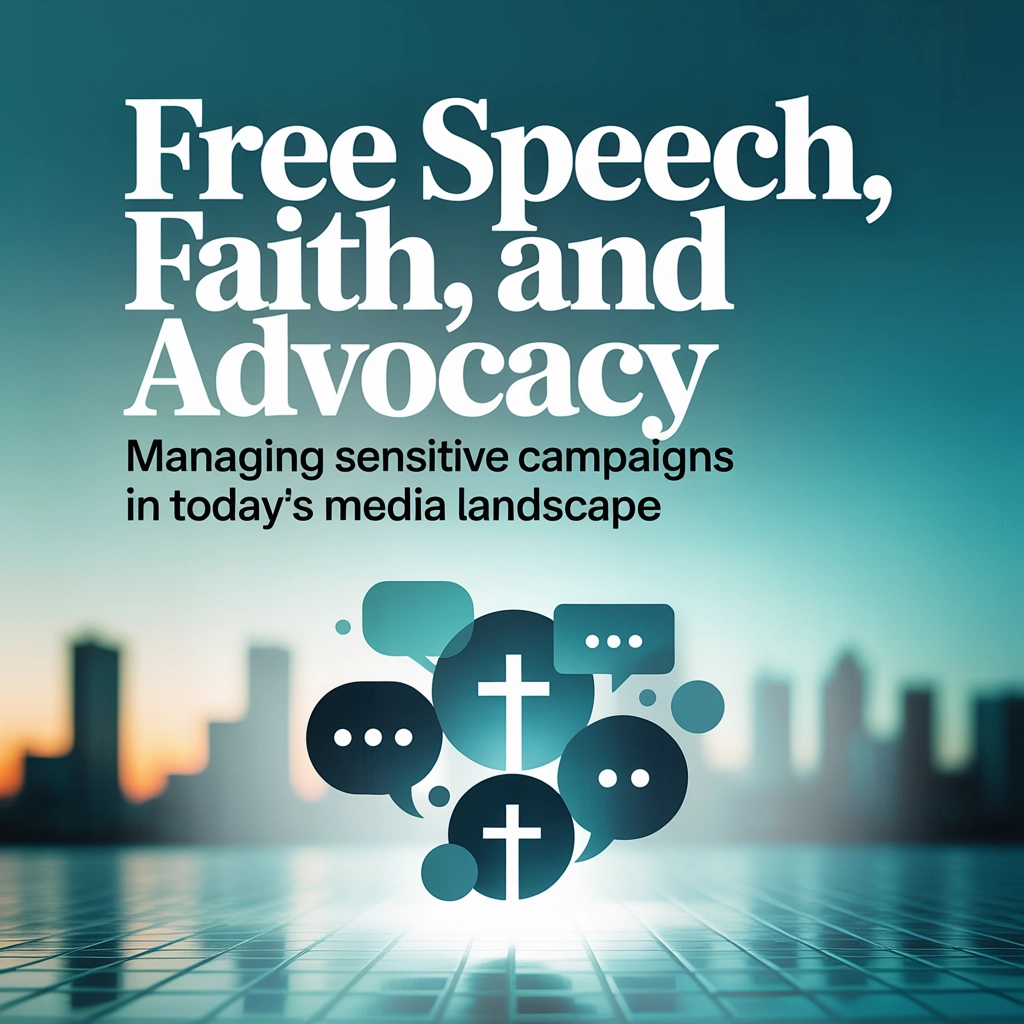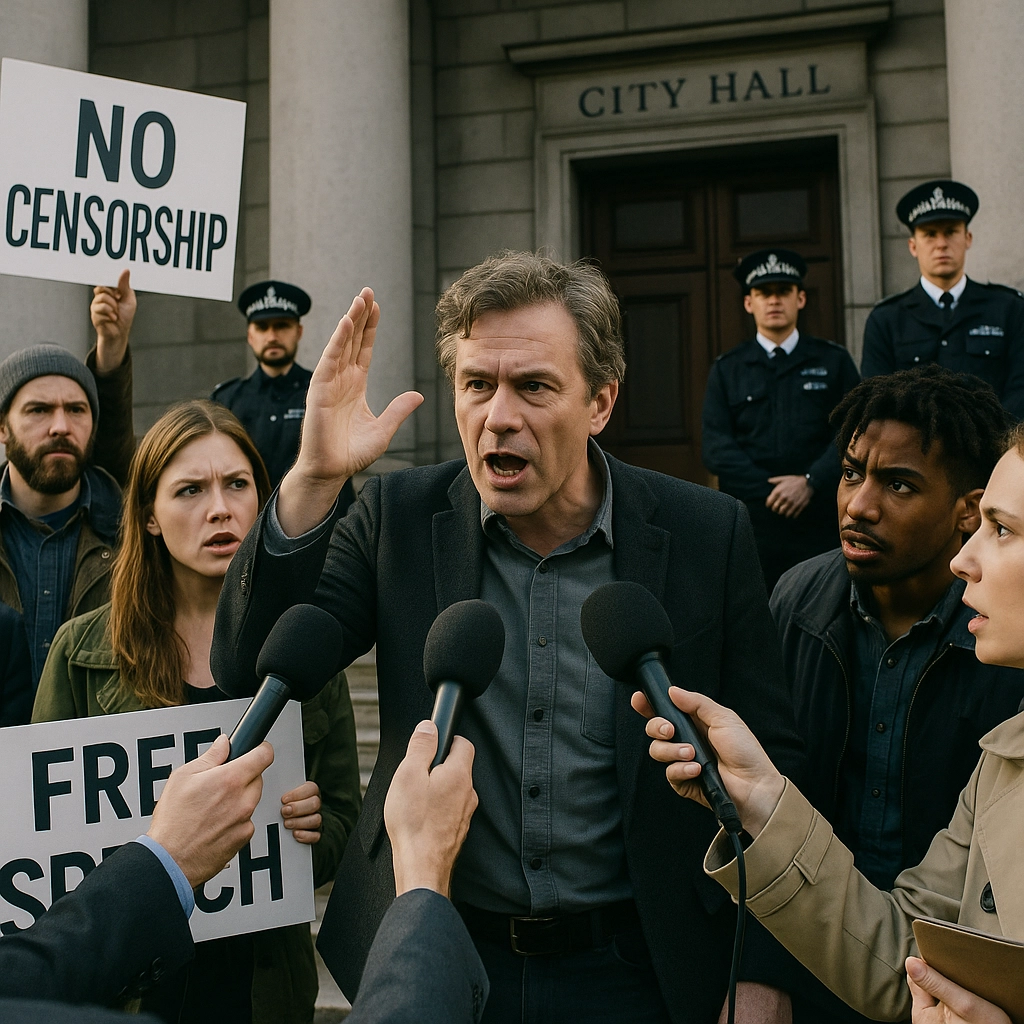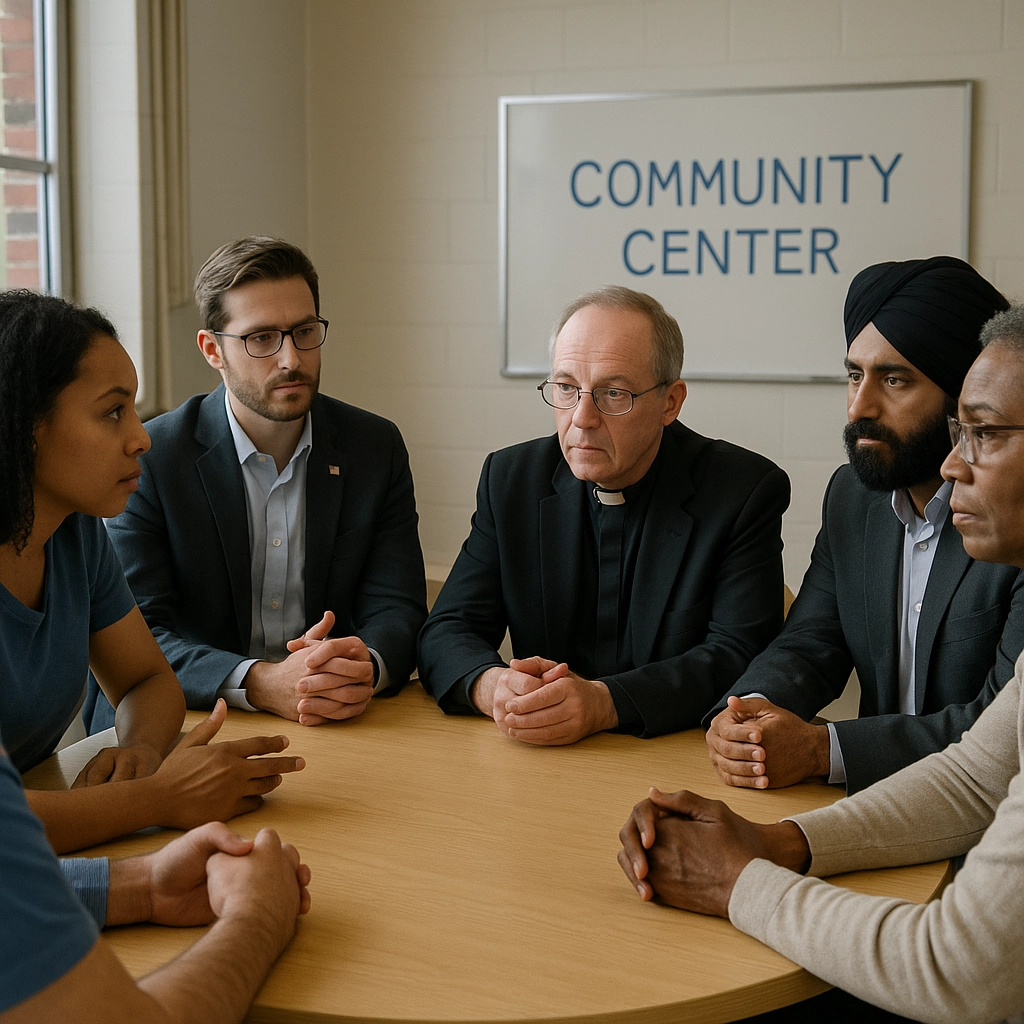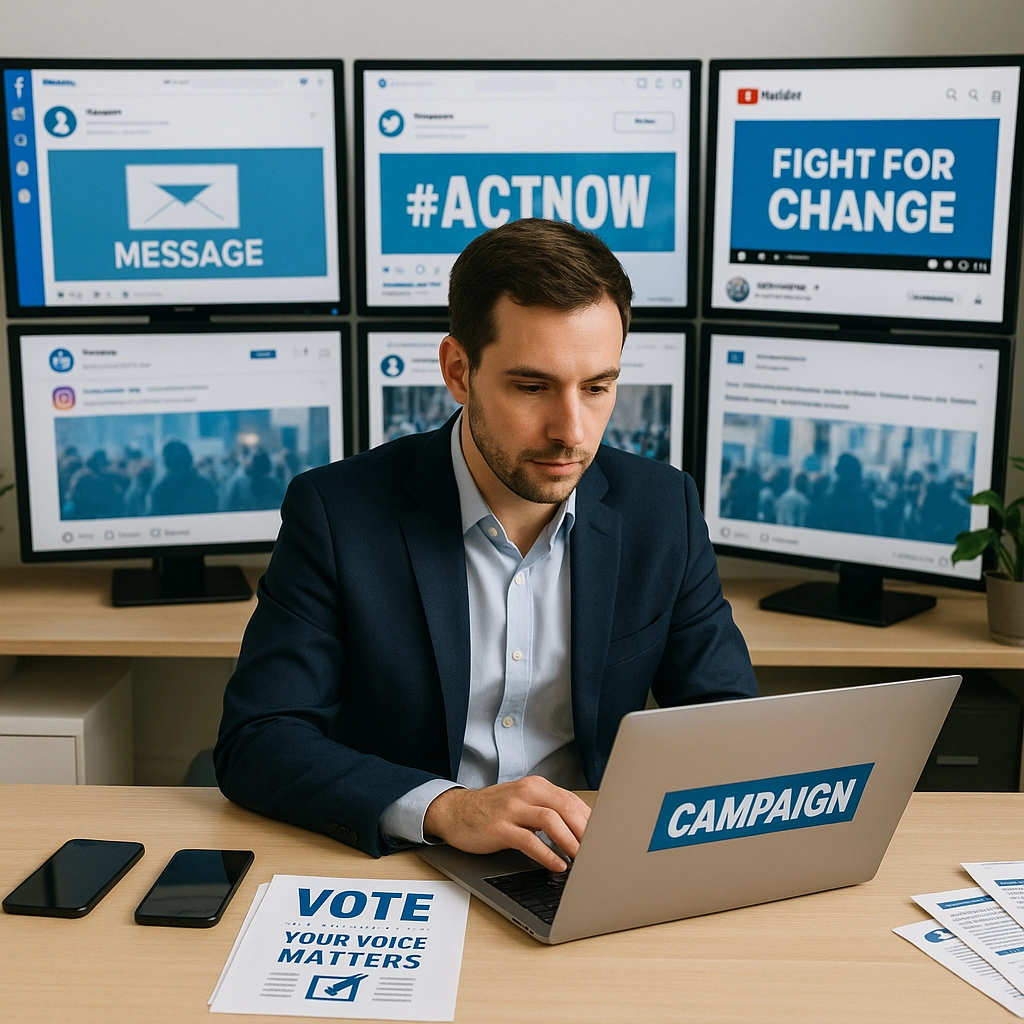
Evolving Terrain: Free Speech and Advocacy in 2025
The media landscape of 2025 presents a staggering range of challenges for organisations, charities, and faith groups seeking to speak out. Structural pressures on free expression – from new legislation to shifting norms around social justice, and the unpredictable rhythms of digital censorship – make advocacy more delicate than ever.
At Team Britannia PR, we’ve watched this space evolve dramatically. Managing sensitive campaigns isn’t just about message control any more; it’s about smart navigation across social, legal, and ethical frontiers.
The State of Free Speech: Where Are We Now?
In the UK and globally, free speech increasingly feels under siege from all sides. Government policies, university regulations, social media oversight, tech platform moderation and campaigners determined to no platform their opponents can all restrict what advocacy groups can say and how they say it, especially on important areas of social policy.
Government Overreach and Pressures
Across the globe, measures originally designed to counteract extremism or misinformation are sometimes used as levers to stifle debate and silence dissent. Recent years have seen:
- Financial penalties and executive pressure on media houses
- Executive orders curtailing access for critical journalists
- Gagging of student protests at universities or no platforming
- Tightening of public order acts making it harder to rally for causes
In the UK specifically, recent proposals for restrictions on public protest, a renewed focus on countering “extremist” content online, and ongoing crackdowns on press access to sensitive hearings have all contributed to a noticeably chillier climate for outspoken advocacy.
Digital Platforms: Moderation and Regulation
If you're not talking about your cause online, you’re invisible. But with that exposure comes vulnerability. Social channels frequently update their community standards and algorithms. The Online Safety Act and similar proposals are designed to protect minors online, but their lack of clarity leaves campaigners worried. Over-moderation can disallow legitimate conversations, especially around topics like faith, identities, and race.
For many years we have seen how Christian and faith based groups, for whom the online world forms a vital support network and platform, are disproportionately at risk of having their expression curtailed.

Why Faith-Based Advocacy Faces Unique Risks
Protecting religious freedom and expression is part of the democratic DNA, but have been eroded as the proportion of those declaring themselves to have a faith or be a churchgoer has been in decline.
Key Tensions:
- Faith vs. Perceived Secular Norms: Issues surrounding marriage, gender, and education are fiercely debated, generating both heartfelt support and vociferous protest.
- Public Perceptions: Faith-based viewpoints can be framed negatively or misrepresented by opponents or even by mainstream media, requiring campaigners to work extra hard to establish credibility and trust.
- Legislative Uncertainty: With regular court challenges to faith-based expression and new rules on hate speech, groups worry their public campaigns may cross unseen legal lines.
Campaigns about faith, especially on topics like education policies, reproductive rights, or hate crime legislation, often stand at the centre of the free speech debate.
The Classroom Front Line: Education and Speech
A particular flashpoint in the UK and elsewhere is education. Political forces across the spectrum intervene in debates on curriculum, speech codes, and acceptable classroom discussion more than ever.
- Policy-Making as Speech Control: Framing “good” schools as those that avoid “dangerous” topics
- Prohibiting or Problematising Discussion: Restricting so-called controversial or “traditional” views on gender
- Protecting Children — Or Silencing Debate? Bans on teaching about certain faith perspectives, or even UK colonial history, are sometimes justified as protecting children but often restrict critical dialogue.
Campaigns advocating for or against these policies must tread carefully, being clear, transparent, and persistent, lest their causes be trivialised or outright blocked.

The Global Backdrop: Erosion of Press Freedom
It’s crucial to remember that these issues aren’t only British. Across the world, journalists are being harassed, media houses shuttered, and digital platforms censored—even in democracies. Discussions or adverts on topics such as abortion are removed for "violating community rules". With fewer safe spaces for free media, fair discussion is under existential threat.
Why does this matter for UK-based campaigners?
Because the tenor of debate here is shaped by global trends. Crackdowns and censorship abroad send signals; boundaries are porous; and British campaigners are often in solidarity networks with colleagues abroad where risks are more pronounced.
Strategic Approaches for Sensitive Campaigns
Finding your voice and keeping your seat at the table takes far more finesse today. Here’s what works—and what’s next.
1. Build a Robust Legal Understanding
Before embarking on any campaign, research the legal and regulatory boundaries you need to operate within. Don’t rely on outdated assumptions: consult specialist advisers. Stay briefed on:
- The latest hate speech provisions
- Data protection and GDPR-style restrictions around campaign data
- Evolving bills like the Online Safety Act or relevant equality laws
- School policies and education law for youth campaigns
Being wrong-footed is costly and can shut down your campaign before it begins.
2. Diversify Your Platforms
Don’t put all your advocacy eggs in one basket. Social media giants can—and do—change community standards overnight or ban accounts with little warning. To future-proof your message:
- Develop a presence across multiple social channels
- Keep your email and website lists well maintained (see our Contact page)
- Have contingency plans and offline strategies ready
Consider podcasts, newsletters, and even direct mailers, especially if your core audience isn’t only digital.

3. Master Careful Framing
Sensitive issues require delicate, audience-aware framing to resonate while respecting legal and community standards. For example:
- Link personal stories to wider principles (like fairness, justice, family, or hope)
- Express values rather than focus solely on contentious rights or demands
- Build a coalition by collaborating with affected stakeholders in shaping campaign messaging
Using positive language can often keep doors open and reduce the risk of platform moderation.
4. Rally Coalitions and Civil Society
You’re stronger together. Many of today’s challenges cross traditional campaign boundaries—faith-based groups, race and equality campaigners, youth advocates, and free press defenders often share the same policy obstacles. By joining or forming broad-based coalitions:
- You amplify your reach and credibility
- You can weather attacks from detractors more effectively
- Joint appeals to decision-makers carry greater weight

Case Study: Navigating a Faith and Free Speech Advocacy Campaign
For nearly two decades our team members have been advocating for greater protection of religious expression. One such campaign was amending Section 5 of the 1986 Public Order Act, a pernicious piece of legislation, originally introduced for the police to use against militant union activists on the picket line, in morphed into a catchall law that criminalised unintentional insults, leading to thousands of arrests and prosecutions every year on Christians, atheists, even well know campaigners like Peter Tatchell. Our team members assisted in several ways:
- Coalition Building: Supported the development of the broadest coalition possible.
- Legislative Amendments: Supported the drafting of the legislative amendment to change the law.
- Stakeholder Dialogue: Brought together faith leaders, campaigners, and parliamentarians to find shared values.
- Media Engagement: Pitched the group’s story to mainstream and faith-based outlets including case studies.
- Multi-Channel Messaging: Launched coordinated messages across social media and the press to ensure broad and sustained coverage.
The result? Not only did the campaign land media headlines and Parliamentary attention, but it led to a change in the law —demonstrating the power of thoughtful, lawful, and empathetic campaign management.
Looking Ahead: Adaptability Is Key
Campaigners who want to make a difference—with a faith perspective, for free speech, or for any sensitive issue—can’t afford to be reactive. Proactivity, meticulous planning, and an ability to adapt messaging to shifting platforms and policies are vital.
- Invest in Monitoring: Continually scan the regulatory and digital landscape.
- Train Spokespeople: Ensure everyone understands both risks and opportunities.
- Prioritise Transparency: Work in the open and own your mistakes.
Above all, hold tight to your values and practice the very freedoms you’re seeking to defend. In a climate of uncertainty, confidently and skilfully managed advocacy is not just possible—it’s more important than ever.
If you want to discuss how your organisation can navigate this challenging landscape, get in touch with the Team Britannia PR experts here.
